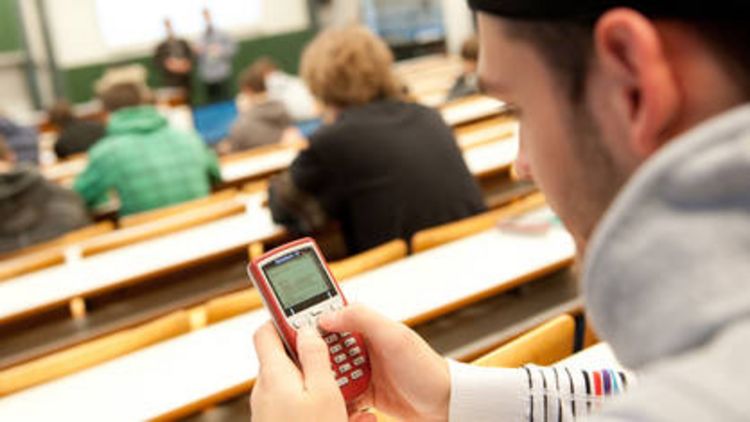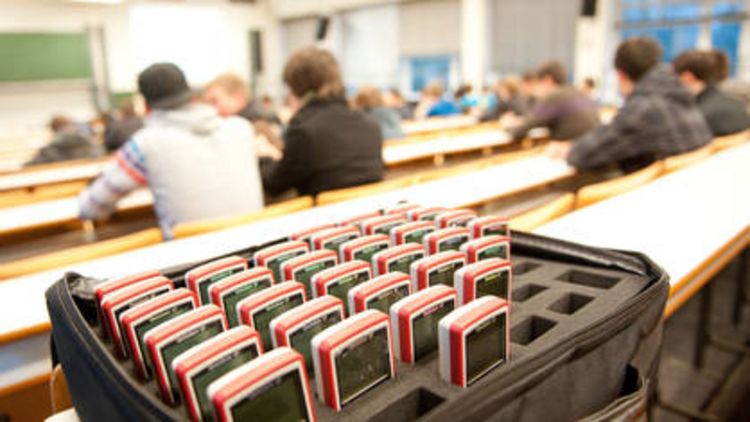"Who has read Jeff Jarvis's new book?" This is the kind of question that opens the discussion in many seminars. But this approach doesn't really work at a well-attended lecture. To make contact with his audience and get their full attention the lecturer has to resort to different means. For example Audience Response Systems (ARS): small, practical devices with which TV audiences are already well acquainted – thanks to Günther Jauch's quiz show "Wer wird Millionär?"
"Clickers" are remote control devices. They have barely been used at universities so far, but now Prof. Dr. Axel Hahn, a business engineering expert, has introduced them at the University of Oldenburg. The advantages: the students can answer questions anonymously with the clicker. The technology then processes and presents the "survey results" as a diagram so that the lecturer can use them instantly. But the devices have other applications beyond the question-answer game. Students can also use them for instance to have their say on whether a certain subject matter should be explained with another example, or whether the pace of the lecture is too fast or too slow.
"Whereas in the past eLearning created a distance between lecturers and students, the clickers are a good example of how communication can be improved in classic lectures," notes Prof. Dr. Gunilla Budde, Vice President for Instruction.
"Using the clickers, a lecture can be better adapted to students' needs. And any lecturer can use the device," Hahn is also convinced. He has introduced the devices into the Lower Saxony Network for E-Assessment and E-Exams (Niedersächsisches Netzwerk für E-Assessments & E-Prüfungen - N2E2), a project financed by the state of Lower Saxony and the University of Oldenburg, partially with tuition fees. "The team working on the project was surprised by the intense interest it generated among lecturers. The first experiences with the devices were so positive that the various faculties are now purchasing new devices. The ones already available are in constant use." New areas of application have already been envisaged within the N2E2 project, according to Hahn. "The ideas range from educational games to electronic exams."








